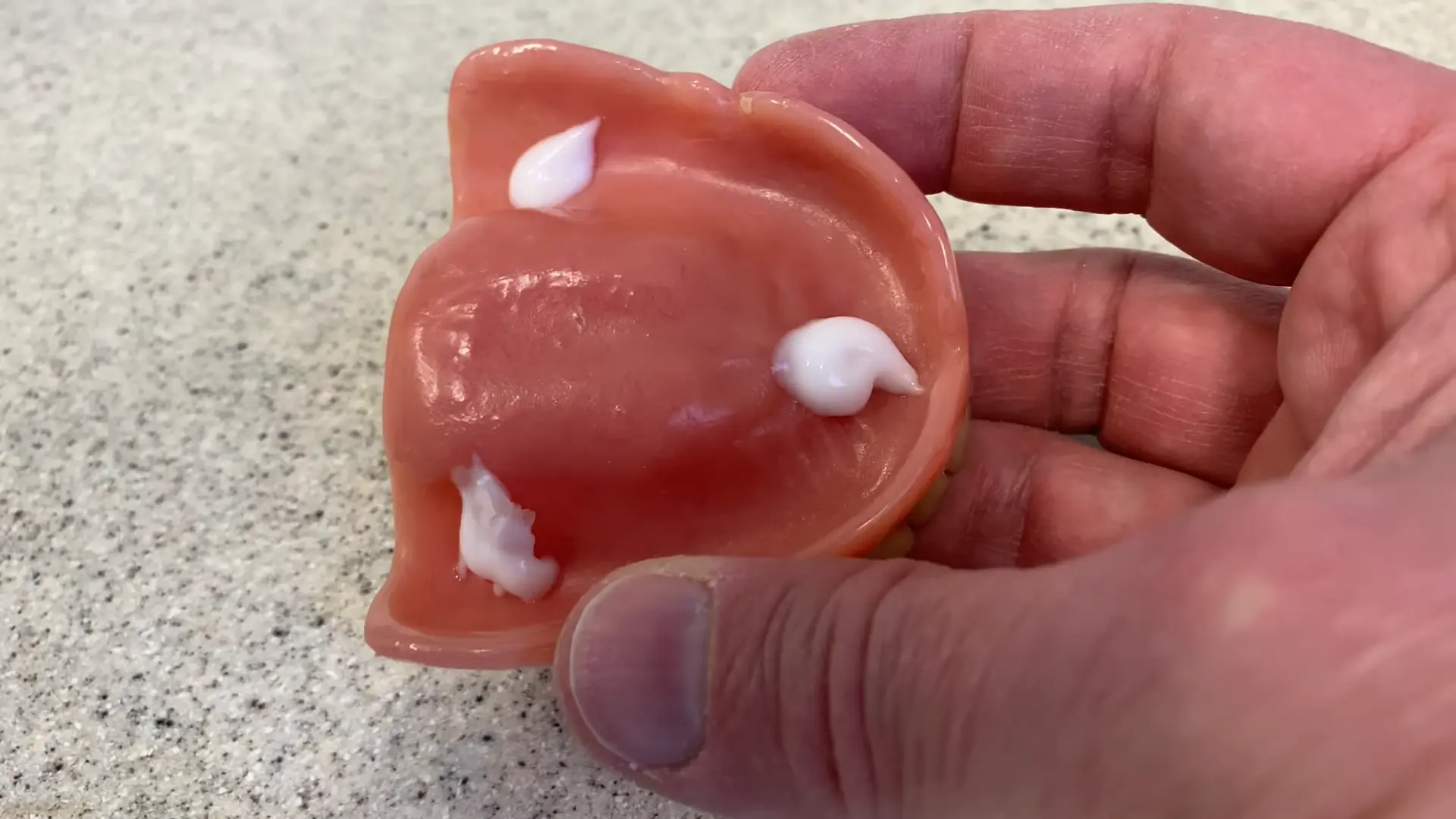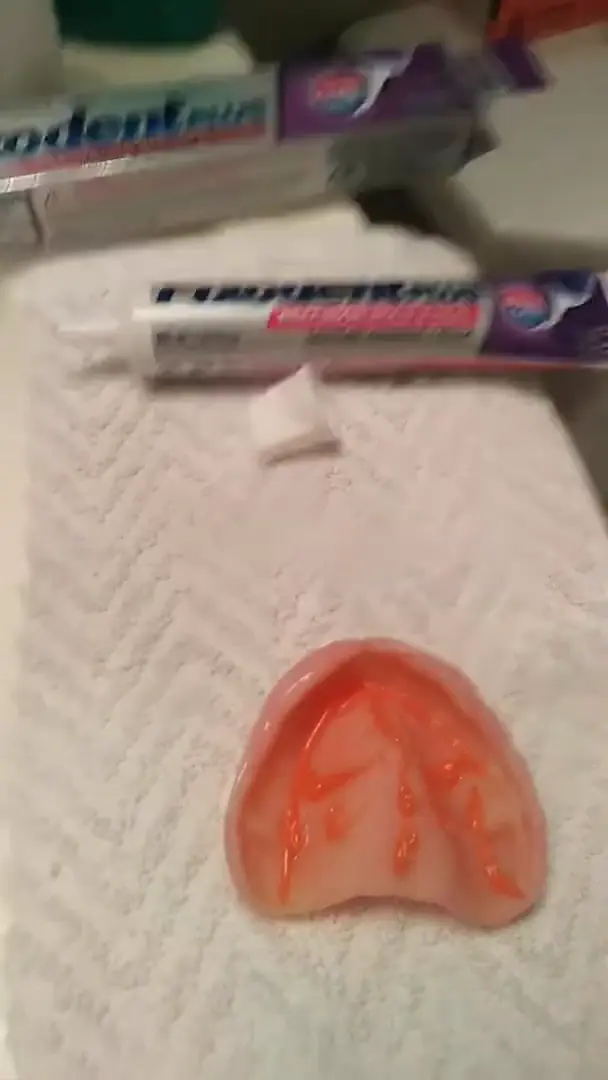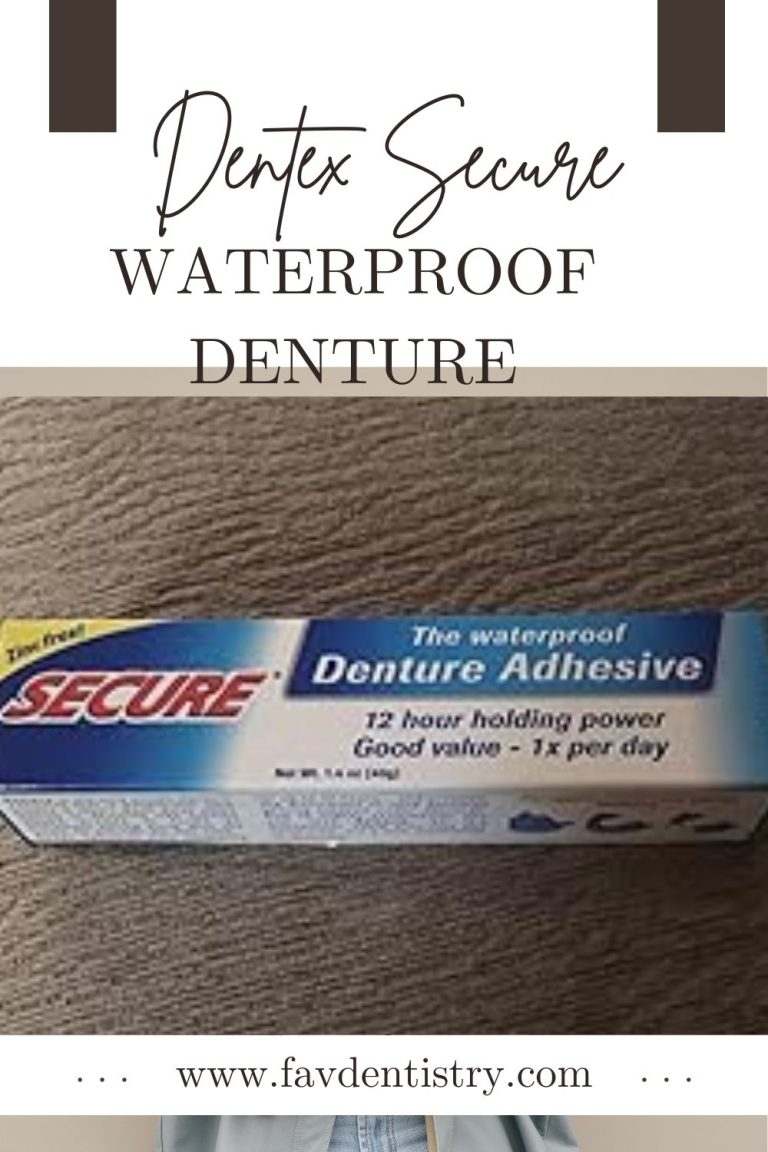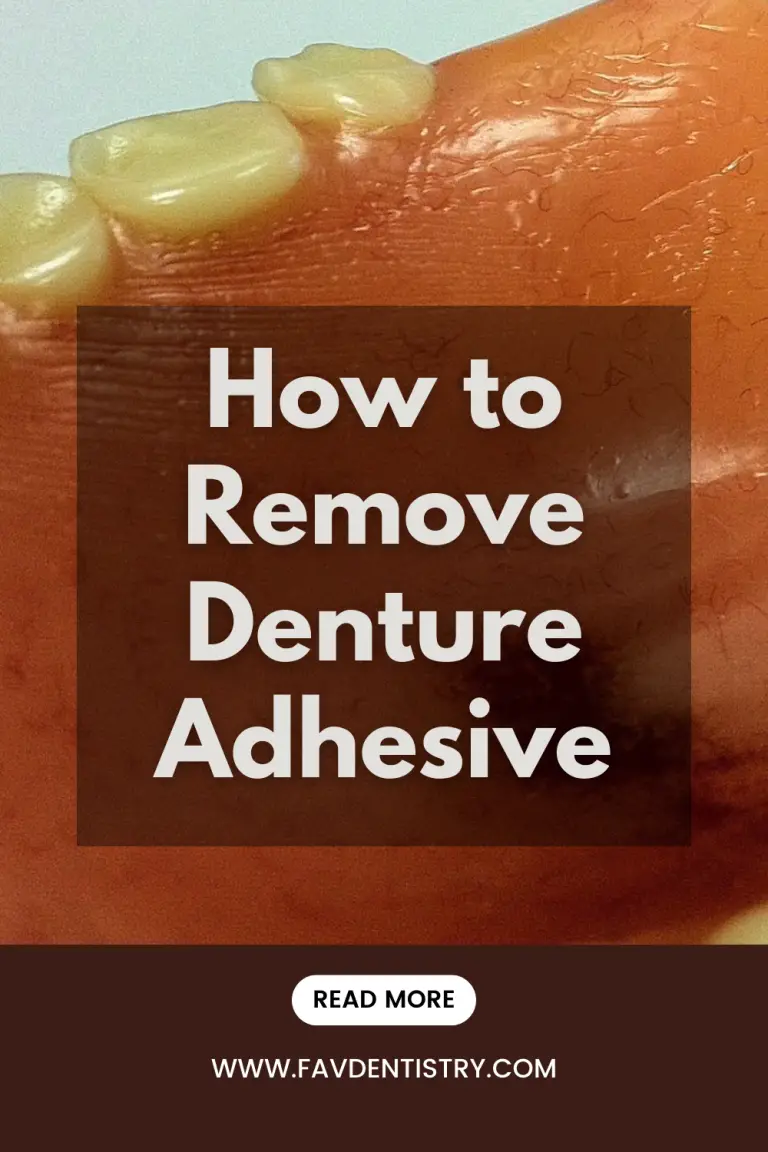Denture Glue Hacks: Secure Your Smile with Confidence!
Last Updated on 6 months by DR. ALBIN SIPES
Denture glue hacks: Use a small amount and apply it to a clean denture. Now, let’s explore some helpful tips to make your denture glue experience more comfortable and effective.
Denture wearers often rely on denture adhesives to keep their dentures in place throughout the day. While these adhesives can be effective, they can also be messy and uncomfortable if not applied correctly. To help you get the most out of your denture adhesive, we have compiled a list of denture glue hacks that you can try.
From using a small amount to applying it to a clean denture, these tips will make your denture glue experience more comfortable and effective. Read on to learn more about denture glue hacks.
Introduction To Denture Glue

When it comes to denture glue, it plays a crucial role in ensuring a secure fit and comfortable wear for denture wearers. Denture adhesive is designed to create a strong bond between the dentures and the gums, preventing them from slipping or moving while eating, speaking, or laughing.
Choosing the right type of denture adhesive is important, as different individuals may have different needs. Some denture adhesives are available in cream or gel form, while others come in powder or strip form. Cream or gel adhesives are easy to apply and provide a long-lasting hold, while powder adhesives are mess-free and offer a strong grip. Strips, on the other hand, provide a thin layer of adhesive that is easy to remove and clean.
It is recommended to consult with your dentist or oral healthcare professional to determine the best denture adhesive for your specific needs. They can provide guidance on the type of adhesive that will work best for your dentures and oral condition.
Preparation Is Key
Preparation is essential for ensuring the effectiveness of denture glue. Start by cleaning your dentures thoroughly with a denture brush and mild soap to remove any residue. This will help the adhesive bond properly. Additionally, preparing your gums is crucial. Make sure your gums are clean and dry before applying the adhesive to ensure a secure fit. Proper preparation of both the dentures and gums is key to maximizing the adhesive’s effectiveness.
Applying Denture Glue Effectively
When applying denture glue, it’s important to use the right quantity. Too much can cause oozing and mess, while too little may result in inadequate adhesion. For strategic placement, apply the adhesive to the denture in thin strips, focusing on the areas that need the most support. Avoid placing the glue too close to the denture edges to prevent it from seeping out while you’re fitting the dentures. Be sure to follow the product’s specific instructions for the best results.
Pro Tips For A Secure Fit
Maintaining a secure fit for your dentures is crucial for comfort and confidence. One factor to consider is the impact of temperature and humidity on your denture glue’s effectiveness. Extreme temperatures can affect the adhesive properties, so it’s important to apply the glue at room temperature. High humidity can also reduce its effectiveness, so ensure that your dentures and gums are dry before applying the adhesive. Additionally, remember to store the denture glue in a cool, dry place to maintain its quality. Timing is also essential when it comes to application. Allow the adhesive to set for a few minutes before inserting your dentures. This will enhance the bond and provide a more secure fit. By following these simple tips, you can maximize the effectiveness of your denture glue and enjoy a comfortable, confident smile.
When To Reapply Denture Glue: The Hacks

Knowing when to reapply denture glue is important to ensure a secure fit throughout the day. Signs of loosening can include discomfort, a clicking sound when speaking or eating, or even the dentures slipping out of place. It is recommended to reapply the adhesive if any of these signs occur.
Daily adhesives are designed to provide a secure hold for a shorter duration, typically lasting up to 12 hours. They are ideal for those who prefer to remove their dentures at night. On the other hand, long-term adhesives offer a stronger hold and can last up to 24 hours. These are suitable for individuals who prefer to keep their dentures in place all day and night.
When choosing a denture adhesive, it is essential to consider personal preferences and lifestyle. Experimenting with different brands and types can help determine which adhesive provides the best fit and comfort for each individual.
Also read – what can i use instead of denture glue
Eating And Drinking With Confidence
Eating and drinking with confidence is essential for denture wearers. Properly securing dentures with the right adhesive is crucial, but denture glue can be messy and difficult to work with. Here are some denture glue hacks that can help:
Foods To Enjoy
| Foods | Description |
|---|---|
| Soft, cooked vegetables | Easy to chew and swallow |
| Soft fruits | Can be cut into small pieces for easier consumption |
| Moist foods | Less likely to stick to dentures |
Foods To Avoid
- Sticky foods like caramel or chewing gum
- Hard and crunchy foods like nuts or popcorn
- Tough meats or jerky
- Spicy or acidic foods that can irritate the gums
Using these denture glue hacks and being mindful of the foods you eat can help you eat and drink with confidence, knowing that your dentures are securely in place.
Troubleshooting Common Issues
Experience hassle-free denture wearing with these effective denture glue hacks. Say goodbye to common issues like loose dentures or discomfort, as these tips will help you keep your dentures secure all day long.
| Troubleshooting Common Issues |
|---|
| Removing Excess Adhesive |
| One of the most common issues denture wearers face is excess adhesive. To remove any excess adhesive, try using a cotton swab or a soft-bristled toothbrush dipped in warm water. Gently scrub the adhesive until it starts to come off. You can also try using a denture adhesive remover solution. |
| Dealing with Discomfort |
| Dentures can cause discomfort, especially in the first few weeks of wearing them. To deal with discomfort, try using a denture adhesive that contains a numbing agent. You can also try using a denture cushion or pad to reduce pressure on your gums. If the discomfort persists, consult your dentist to ensure that your dentures fit properly. |
Maintaining Oral Health


Regular cleaning is essential for maintaining good oral health. Here are some tips to keep your dentures in top shape:
- Brush your dentures daily with a soft-bristle toothbrush and non-abrasive denture cleaner. This helps remove plaque and prevent stains.
- Soak your dentures in a denture cleaner or a mixture of water and vinegar to remove any remaining debris.
- Handle your dentures with care to prevent them from breaking. Place a towel in the sink or on the counter when cleaning them to avoid accidents.
- When not wearing your dentures, keep them in a denture soaking solution or plain water to prevent them from drying out.
- Visit your dentist regularly for routine check-ups. This allows them to assess the condition of your dentures and make any necessary adjustments.
Routine Dental Check-ups
In addition to regular cleaning, scheduling routine dental check-ups is crucial for maintaining optimal oral health. During these visits, your dentist can:
| Benefits of Routine Check-Ups | Importance |
|---|---|
| Identify any potential issues early on | Prevents the development of serious dental problems |
| Perform professional cleanings to remove stubborn stains and plaque | Improves the overall appearance of your dentures |
| Adjust and realign your dentures if necessary | Ensures proper fit and comfort |
Conclusion
These denture glue hacks can make a significant difference in your daily life. From using less glue to exploring alternative options, there are several effective strategies to ensure a secure fit. By implementing these tips, you can enhance the comfort and stability of your dentures, allowing you to go about your day with confidence.


